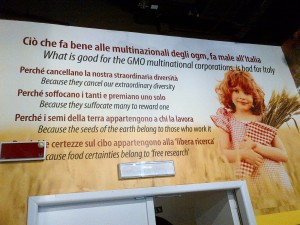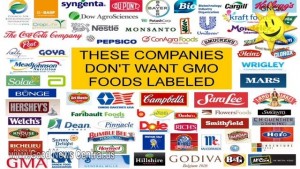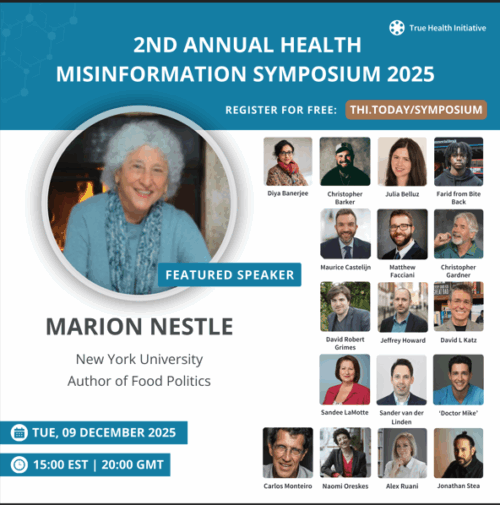Despite my long interest in and dubious opinion about the benefits of Golden Rice (genetically modified to contain the beta-carotene precursor of vitamin A), I somehow completely missed the huge and highly embarrassing uproar over a study demonstrating the effectiveness of this rice in raising vitamin A levels in young children.
This particular uproar began with publication of the study in the American Journal of Clinical Nutrition in 2012. Last week the journal announced that it has retracted the study—on ethical, not scientific, grounds.
To explain: Dr. Guangwen Tang, a long-time researcher at Tufts University, and her colleagues at Tufts, in China, and at Baylor and the NIH, compared the effectiveness of vitamin A capsules, Golden Rice, and spinach in raising vitamin A levels in the blood of Chinese schoolchildren. They reported that Golden Rice proved just as effective as capsules, and somewhat better than spinach, in inducing higher vitamin A levels, just as it is supposed to do.
Golden Rice, of course, is the poster child for the benefits of GMOs, extolled by many as the solution to the developing world’s high prevalence of vitamin A deficiency (I’m dubious because I view vitamin A deficiency as a social problem requiring policy and cultural shifts).
Soon after, Greenpeace, which is decidedly anti-GMO, challenged the ethics of the study, charging that the children were being used as “guinea pigs.”
As reported in Nature,
none of the children, their parents or school teachers was aware that Golden Rice was involved, according to a 45-minute investigative news programme broadcast on 8 December on CCTV, China’s state television channel. The informed-consent form said that the rice contained β-carotene, but not that it was genetically modified or that it was Golden Rice. Nor did it highlight uncertainty around any potential risks of ingesting such rice…Moreover, Wang didn’t apply for ethical evaluation of the trial, instead fabricating the approval documents, according to CDC. And Tang brought Golden Rice from the United States to China illegally, without due declaration to the relevant Chinese authorities, it said.
According to a report on NPR, Tufts University did a year-long investigation and agreed that ethical standards had been violated:
the study was not “conducted in full compliance with … policy or federal regulations”… the researchers did not adequately explain the nature of golden rice and made some changes in the study without getting approval from the committee at Tufts that is supposed to review all research involving human subjects. Guangwen Tang will be banned from conducting research on human subjects for two years. For two years after that, any research that she conducts will be under the direct supervision of another investigator.
A report on the case in ScienceInsider explains the ethical problem raised by the study’s informed consent form :
U.S. guidelines stipulate that such forms use plain language understandable to lay people, and the IRB [the Tufts Institutional Review Board] agreed to let Tang say that “Golden Rice is a new rice which makes beta-carotene,” without using the loaded words “genetically modified.” (The consent form for a very similar study by Tang among adults in Boston, published in 2009, didn’t use that term either.) Given the sensitivities over transgenic food, which existed in China as well, that was the wrong decision, according to the external panel.
In 2014, Dr. Tang sued the ASN:
ASN twice asked Tang and her six co-authors to withdraw the paper voluntarily, which they declined to do. The society recently decided to retract the paper on its own…but it has agreed to a 90-day stay after Tang filed her lawsuit, to see if the matter can be settled out of court.
But the court ruled in favor of ASN. Hence, the retraction. ASN issued a press release:
In a ruling by the Massachusetts Superior Court, Judge Salinger…cleared the way for the American Society for Nutrition (ASN) to retract the article “β-Carotene in Golden Rice is as good as β-carotene in oil at providing vitamin A to children”…ASN is very pleased that the Massachusetts courts have upheld the organization’s First Amendment rights and have allowed ASN to move forward with the retraction of the article.
In its online retraction notice, ASN states the reasons:
- The authors are unable to provide sufficient evidence that the study had been reviewed and approved by a local ethics committee in China in a manner fully consistent with NIH guidelines….
- The authors are unable to substantiate through documentary evidence that all parents or children involved in the study were provided with the full consent form for the study.
- Specific eligibility issues were identified in regard to 2 subjects in the study.
Last week, Retraction Watch published a lengthy summary of this case that includes a long statement from Tufts University:
No questions were raised about the integrity of the study data, accuracy of the research results or safety of the research subjects…Tufts University has always been and remains deeply committed to the highest ethical and scientific standards in research. In September 2012, w …convened an external review committee to interview those involved and to review documentation of the study…There was no evidence found of falsification or fabrication of the data that underlie the study’s primary findings. Those reviews did, however, determine that the research had not been conducted in full compliance with Tufts research policies and federal research regulations.
The retraction is a huge embarrassment, not only for the researchers involved but also for Tufts University’s Friedman School of Nutrition Science and Policy, Tufts’ Institutional Review Board, the American Journal of Clinical Nutrition, and the American Society for Clinical Nutrition.
The study was funded by NIH, USDA, as well as a program in China. NIH takes research ethics very seriously and expects the researchers it funds to adhere to the highest possible standards for research on human subjects. Because the study did not follow standard ethical guidelines, especially with regard to research on children, Tufts had no choice but to investigate and impose sanctions, and the journal had no choice but to retract the paper.
This case reinforces my views about GMOs in general and Golden Rice in particular.
The controversies are not (or not usually) about the science. They are very much about ethics and other questions of values.


 In case you can’t read the photo:
In case you can’t read the photo:


